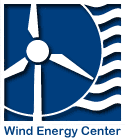Abstract
Using examples from decisions about climate change mitigation, adaptation, and geoengineering strategies, the presentation discusses how the application of a robust decisionmaking framework can improve decision support, identify mission-critical basic science questions, simplify the integration of new scientific findings, and provide avenues to analyze coupled epistemic-ethical questions.
Selected Publications (cf. http://www3.geosc.psu.edu/~kzk10/publications.html)
Garner, G., P. Reed, and K. Keller: Climate risk management requires explicit representation of societal trade-offs. Climatic Change Letters doi:10.1007/s10584-016-1607-3 (2016).
Hadka, D., J. Herman, P. Reed, and K. Keller: OpenMORDM: An Open Source Framework for Many-Objective Robust Decision Making. Environmental Modeling and Software, 74, 114-120 DOI: 10.1016/j.envsoft.2015.07.014 (2015).
Butler, M.P., P. M. Reed, K. Fisher-Vanden, K. Keller, and T. Wagener: Inaction and climate stabilization uncertainties suggest severe economic costs. Climatic Change, Volume 127, 463-474 (2014).
Irvine, P., R. Sriver, R. and K. Keller: Strong tension between the objectives to reduce sea-level rise and rates of temperature change through solar radiation management, Nature Climate Change, 2, 97–100, doi:10.1038/nclimate1351doi:10.1038/nclimate1351, (2012).
Goes, M, K. Keller, and N. Tuana: The economics (or lack thereof) of aerosol geoengineering, Climatic Change, Volume 109, Numbers 3-4, Pages 719-744 (2011).
Keller, K., B. M. Bolker, and D. F. Bradford: Uncertain climate thresholds and economic optimal growth. Journal of Environmental Economics and Management, 48, 723-741 (2004).

